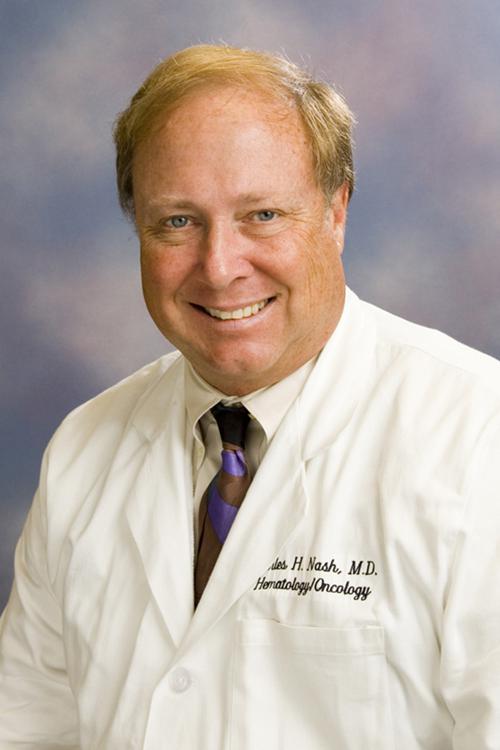Nearly every person has been touched by cancer in some way. Cancer, which occurs when cells in the body grow out of control and spread to other parts of the body, is the second most common disease in the United States.
In 2022 alone, the American Cancer Society estimated that 1.9 million new cases of cancer would be diagnosed. With a condition so common, is it possible to prevent cancer?
While there’s no way to fully prevent the more than 100 different types of cancer, there are steps you can take to lower your risk. Read on to learn more.
The Facts About Cancer
Cancer has been around for centuries, with the first mention of the disease we know as cancer dating back to 3000 BC in Egypt. But the last few decades have brought more learning about the disease—and the most innovations in preventing, diagnosing, and treating cancer—than ever before.
We now know a good deal about the most common types of cancer, which include breast, prostate, lung, colorectal, melanoma, bladder, non-Hodgkin lymphoma, kidney, and thyroid cancers. More than 40,000 new cases of these cancers alone were diagnosed in the state of Georgia last year, including 9,170 cases of breast cancer and 9,150 cases of prostate cancer.
All this information has helped greatly improve outcomes, with cancer death rates steadily decreasing since reaching a high in 1991. Knowing what causes cancer and being able to detect it early makes the disease more treatable and survivable in many cases.
Steps You Can Take to Prevent Cancer
It can be easy to feel a little overwhelmed when you start to think about your health. After all, if you turn on the TV on any given day, you’ll learn something new that you’re supposed to do (or not do) to stay healthy.
But cancer prevention doesn’t have to be complicated. You can lower your risk of developing cancer by creating and maintaining healthy lifestyle habits. Start with these:
- Move your body more often.
Many of us spend most hours of the day seated at a desk, which isn’t the healthiest. What you do when you aren’t working can make a big impact on your health. It’s important to get moving—and more specifically, to get your heart pumping. Aim to get at least 150 minutes of moderate-intensity physical activity (like briskly walking, swimming, or jogging) or 75 minutes of vigorous-intensity activity (like running, dancing, or playing tennis) each week. Even when you aren’t exercising, get up and move every so often. The less sedentary you are, the better. - Fuel your body in a healthy way.
“You are what you eat” has some merit. The foods you eat impact your health in a major way. Choosing healthy foods can help you prevent cancer, so fill your plate with plenty of fruits and vegetables, whole grains, and lean protein. Fruits and veggies are especially important since they’re packed with healthy nutrients and antioxidants that can help prevent cancer. What should you eat less of? Limit your intake of red and processed meats, foods containing saturated fat and excess sodium, and sugary, high-calorie drinks. - Limit how much alcohol you drink.
Recent research shows that even a small amount of alcohol can have a negative effect on your health. With that said, though, if you drink, limit yourself to a moderate amount. That’s no more than one drink per day for a woman or two drinks per day for a man. What’s considered a drink? That’s 12 ounces of beer or 5 ounces of wine. - Just say no to tobacco.
Smoking is the single most preventable cause of death, but tobacco in any form is dangerous to your health. Smoking and using chewable tobacco can both increase your risk of many types of cancer, including lung cancer and oral cancer. Even secondhand smoking, where you are exposed to smoke when someone else is smoking, can increase your risk. It’s also a good idea not to vape. While e-cigarettes do not contain tobacco, they contain other carcinogens. - Aim for a healthy weight.
Talk with your medical provider about what a healthy weight looks like for you. Being overweight or obese increases your risk of developing cancer, so taking steps to lose weight can help you prevent cancer. Following the two tips above about exercising and eating a healthy diet can help you drop excess weight. Even losing a few pounds can be helpful, and it will improve your overall health, too. - Screen for your health.
Many types of cancer don’t cause noticeable symptoms, which is why it’s important to see your medical provider for regular checkups and age-appropriate cancer screenings. The types of cancer screenings you should have vary by age, gender, and other factors, including family medical history. Most women should have cervical cancer screening beginning at age 25 and breast cancer screening beginning at age 40. Beginning at age 45, men should consider having prostate cancer screening. Both men and women should begin having colorectal cancer screening beginning at age 45. These routine cancer screenings are typically covered free of cost under many health insurance plans. Other screenings, including lung cancer screening and skin cancer screening, may also be recommended, depending on your risk factors.
The Bottom Line About Cancer
While we can lower the risk of developing cancer with healthy lifestyle habits and regular screenings, there’s no way to totally prevent it.
But innovations in how we detect and treat cancer mean that cancer is much more survivable these days than it was even a decade or two ago. In fact, there are currently more than 18.1 million cancer survivors in the United States, with more being added to the number every day.
If you or someone you love are diagnosed with cancer, know that there is hope! The expert care and services you need can be found close to home, and we’re here to walk with you every step of the way.
Learn More
Recently diagnosed with cancer? Northeast Georgia Medical Center offers a robust Cancer Services program, treating more than 3,000 new cancer patients each year. Connect with our Patient Navigation team or learn more about our Cancer Services Program.



